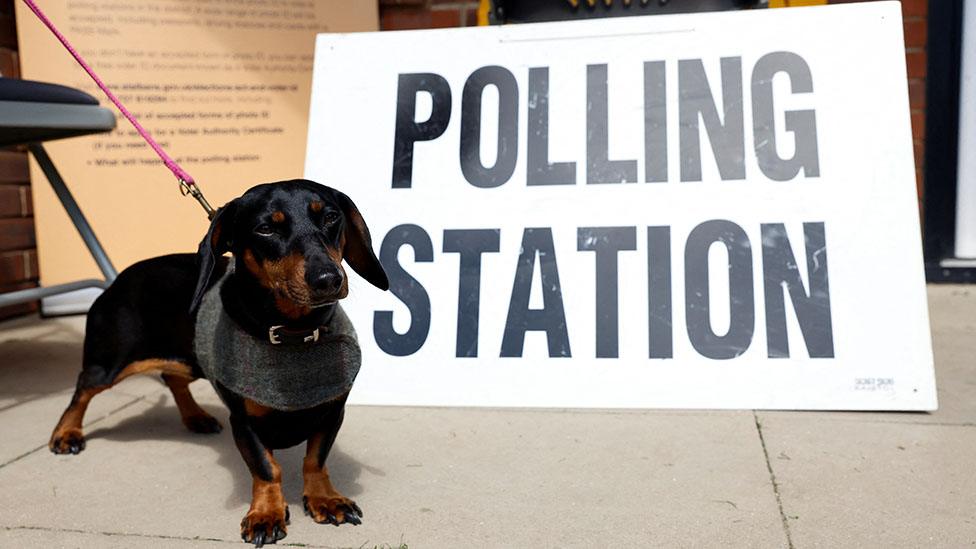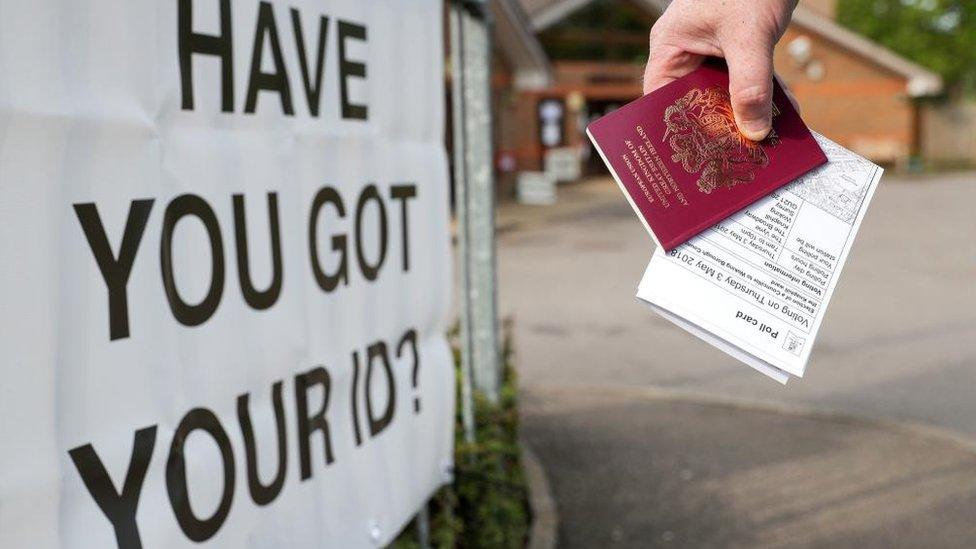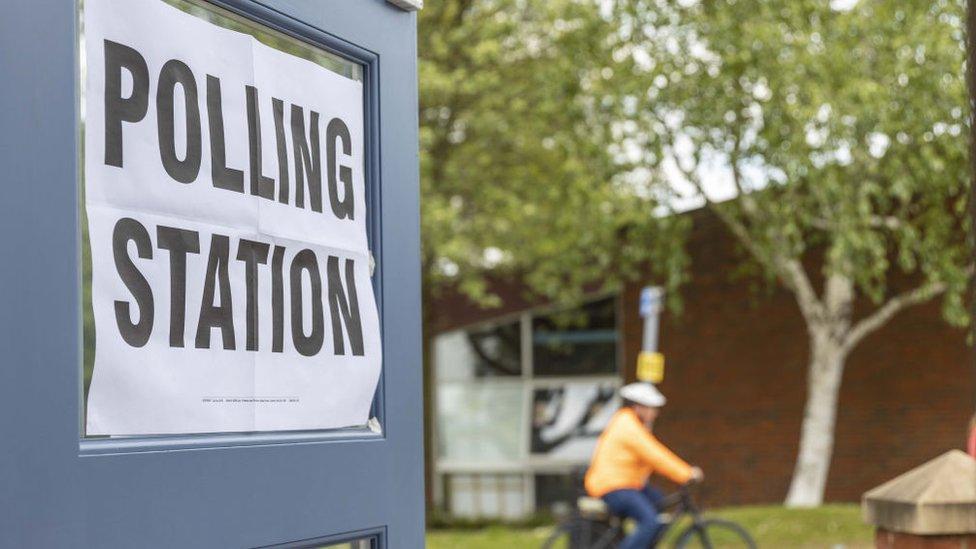Nearly 1,000 voters without photo ID turned away

Some polling station visitors did not have to bring ID
At a glance
Nearly 1,000 Tyne and Wear voters were turned away from polling stations for having no photo ID
Critics of the new law said it would lead to voter suppression
The government said it reduced the risk of voter fraud
- Published
Nearly 1,000 voters in Tyne and Wear were turned away from polling stations last week because they did not have photographic identification (ID).
The elections were the first requiring people in England to show a form of ID such as passport or driving licence when casting their ballot.
The government said this was needed to reduce the risk of voter fraud.
Opponents of the controversial new law said it was a form of voter suppression.
The five Tyneside and Wearside councils where elections were held last week have now confirmed 927 people were turned away at their first attempt to vote.
Of these, 347 did not return.
North Tyneside Council's deputy mayor Carl Johnson called for the voter ID system to be “reviewed urgently to stop people losing their democratic right to vote”.
The Labour councillor said: “Ten people were charged with voter fraud in the past four years across the entire country.
"In this election alone in North Tyneside 100 people were denied a vote by the Conservative Party using a sledgehammer to crack a nut."
'Understand the impact'
It has been estimated more than two million people in the UK do not have access to a photo ID, with concerns raised over the impact on already marginalised groups, the Local Democracy Reporting Service said.
The government said it was "vital we keep our democracy secure, prevent the potential for voter fraud, and bring the rest of the UK in line with Northern Ireland" which already requires photo ID.
The Electoral Commission has acknowledged "the greater challenge" posed by the rollout and is due to publish analysis of its impact next month.
This was needed "before a final view can be taken on how the policy has worked in practice and what can be learnt for future elections”, it said.
Number of voters turned away and those who did not return:
Newcastle - 228, 85
North Tyneside - 261, 100
Gateshead - 113, 43
South Tyneside - 189, 76
Sunderland - 136, 43
Follow BBC North East & Cumbria on Twitter, external, Facebook, external and Instagram, external. Send your story ideas to northeastandcumbria@bbc.co.uk.
Related topics
- Published5 May 2023

- Published14 April 2023
